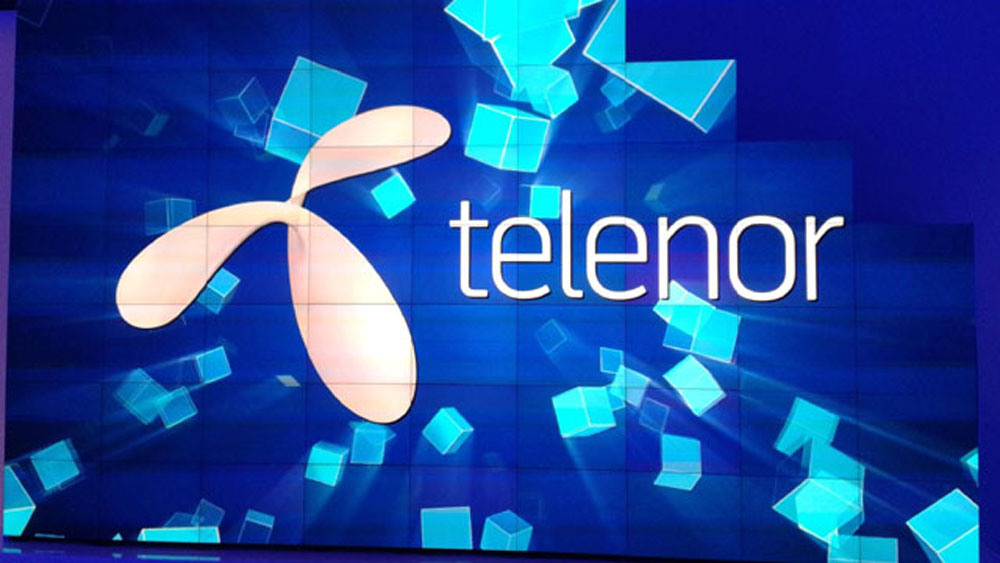
KARACHI ( Web News )
Ownership of the country’s second-largest cellular service provider may soon change hands as Telenor Pakistan looks to exit the country amid growing cost of doing business and shrinking prospects, Dawn has learnt.
As per those privy to the development, Telenor Pakistan is said to be in talks with an Emirates-based multinational telecom firm to sell its operations.
Although a spokesperson for Telenor Pakistan declined to comment on the development, insiders told Dawn that talks between the Emirati firm, which already has a strong presence in Pakistan, and Telenor have reached an “advanced stage”.
A well-placed source in the IT ministry also confirmed that a deal was currently in the works, but declined to share any other information on the record.
Prospective buyer looking to secure Pakistan’s 2nd largest telecom provider for just under $1bn
Bloomberg reported in November that the Norway-based telecom operator had enlisted the services of the Citigroup to carry out the bidding process.
But according to an industry source, the Norwegian company has engaged not one but two renowned multinational investment banks to execute the sale.
“The Emirati company already has a sizable presence in Pakistan, in nearly all key areas of the telecom sector and it is interested in further consolidating its position,” the source said.
Citing the growing cost of doing business as the key reason behind the sale, the source said that the company had started suffering losses due to the swift appreciation of the US dollar.
The company’s operational costs have touched $55 million, the source said, pointing out that the largest chunk of this was consumed by electricity prices — documents show that in the outgoing financial year, the company paid around $17 million in power bills alone to keep its infrastructure running.
In view of this, experts say it is understandable that Telenor Pakistan would look to cut its losses and — from the company’s perspective — prefer to expand into a region where business prospects or rates of return are better than in Pakistan.
The company had reportedly set an asking price between $1 billion and $1.2bn, but the interested party is looking to spend $780-910 million on the acquisition.
Tough market for investment
Experts agree that the business environment for the telecom sector in general, and the cellular industry in particular, has become quite tough. The government and its regulatory regime, they say, needs to work to revive the industry, which has been in gradual decline for the past couple of years.
“Things have not been good for around two years now, but the recent appreciation of the US dollar had made things even more challenging,” said Parvez Iftikhar, an international consultant on telecom policy and regulation.
According to Mr Iftikhar, Pakistan has one of the lowest average revenue per user in the world, which means that cellular services cost less here than most other countries. It has been an attractive market for cellular providers, given the vast potential for growth.
But there are some regulatory hurdles that make the telecom sector more challenging to operate in. For instance, apart from spending dollars on importing equipment, the government has also pegged spectrum prices to US dollars, which increases the cost of doing business manifold, Mr Iftikhar points out.
In his view, companies are no longer putting fresh investment, even though there is still massive potential for expansion and improvement. Most market players, he says, are just trying to sustain the recent jump in the cost of doing business.
Govt policy
Although he said he was unaware of any such deal being in the works, Federal Minister for Information Technology and Telecom Syed Aminul Haq admitted that business conditions for cellular companies had become tougher due to an overall economic squeeze.
“We at the ministry are trying our best to facilitate cellular companies and all other players in the IT and telecom ecosystem,” he told Dawn.
He recounted that the approval of a Right of Way policy, the transparent spectrum auction a major cut in withholding tax were all incentives provided to the telecom sector, but said that the overall economic condition forced the passage of a ‘mini budget’ and necessitated an increase in withholding taxes “There are several things which are beyond our ministry’s control,” he said.
Rise of the conglomerate
If the deal materialises, Telenor Pakistan will become the second cellular provider to shutter its operations in Pakistan. Before this, Mobilink’s parent company VimpelCom acquired Warid Telecom in the country’s first mobile telecommunications acquisition in 2015.
Subsequently, in February 2017, Mobilink officially announced that it had given up its brand name and would now be called Jazz following a merger with Warid.
Both companies — Telenor and Warid — were awarded licenses in 2004 after the mobile telecom sector was deregulated in 2003 through the Mobile Cellular Policy. Both companies started their operations in 2005. At the time, the entry of two foreign operators gave the sector a much-needed boost.
For reference, the number of cellular subscribers stood at 16 million in 2005, but grew swiftly to reach the 100 million mark by 2011.
According to Pakistan Telecommunication Authority (PTA) figures, Pakistan currently has around 194 million cellular subscribers.

